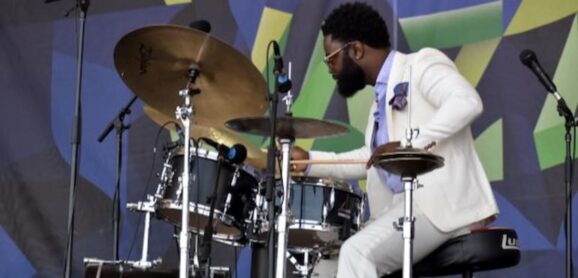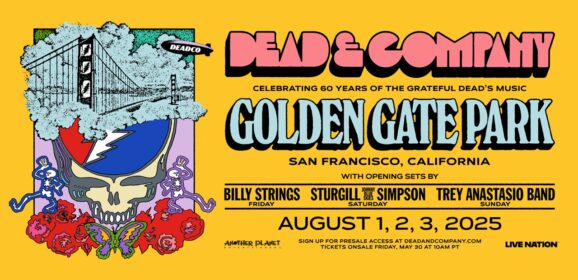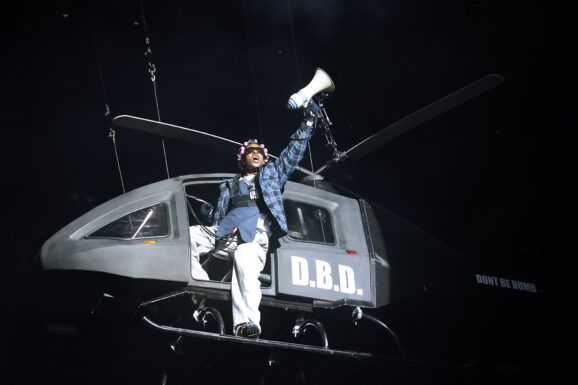“They say they never really miss you ‘till you dead or you gone so on this note I’m leaving after this song” exclaims Jay-Z over the soaring strings of his classic The Black Album. Twenty years ago today Jay-Z announced his retirement with his eighth studio album, which was released on November 14, 2003. Obviously, the retirement was short-lived but the music of his so-called retirement album still stands as some of his best ever. Jay-Z is seemingly solidified as one of the best rappers to ever touch a microphone, the real debate is which of Jay’s projects reign supreme in his expansive discography. The Black Album is undeniably essential listening for any hip-hop fan and its celebratory nature places it amongst, if not on top, of Jay’s storied discography.
The Black Album was recorded throughout 2003 and was produced by some of the most sought-after producers of the time. The likes of The Neptunes, Rick Rubin, 9th Wonder, and Just Blaze were responsible for the robust, braggadocious soundscapes of the album. We were only two years removed from Jay’s other masterpiece, The Blueprint, which featured a more soulful side of Jay’s songwriting. With The Black Album meant to be Jay’s swan song, these tracks feel more personal and dense, a more autobiographical approach to his style. If Jay-Z were to have actually retired, The Black Album would have been his opus. The blaring horns and neck-breaking drum patterns allow each song to play like a confetti cannon, a burst of intricately mixed colors to produce a tracklist brimming with personal realizations and confronting the concept of longevity in a constantly changing genre.
On top of being a testament to Jay-Z’s wide-ranging creativity, The Black Album produced massive hits that continue to stay in modern rotations. “Dirt Off Your Shoulder” took on a life of its own with massive commercial success thanks to the wonky drum patterns provided by Timbaland, “99 Problems” is one of Jay’s most recognizable singles, and “Public Service Announcement” can still be heard during ESPN commercials. Underneath the hits are gems like the Pharrell-assisted funk of “Change Clothes” and one of Kanye West and Jay-Z’s best collaborations with the chopped soul and sharp drums of “Lucifer”. The tracklist shifts from radio-friendly singles to deep cuts for the hip-hop purist, summing up the wide range Jay-Z was and is able to tap into. The mindset Jay-Z must’ve had in knowing The Black Album was his final goodbye lit a fire in a veteran rapper with enough money and stature to still be considered one of the greats, even if he cut things off early 20 years ago.
The Black Album was timeless upon release. On top of the aforementioned chart-topping singles, Jay-Z put together a hip-hop album that showcased the fact he can live in two worlds at once, he can play the radio game while still crafting intricate rhyme schemes with a hint of nuance behind each word. The fame and money Jay-Z has acquired since his eighth studio album has forced a younger generation to forget exactly why his longevity should come as no surprise. The Black Album solidified Jay-Z’s diversity and legacy in one 14-song tracklist overflowing with undeniable verses and danceable hooks set to a wide array of hard-hitting drums and soulful orchestrations.











